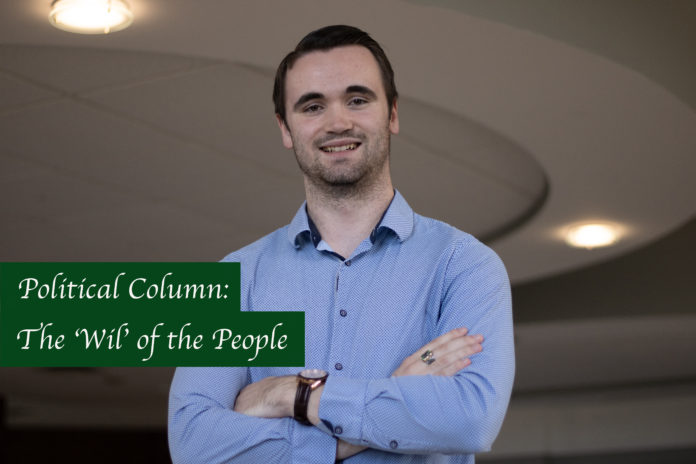
As the race to immunize the population to protect them against COVID-19 takes off at lightning speed, this column looks to give New Brunswickers an important update on the fight against COVID-19 and the hope spreading across the globe, one vaccine at a time.
More than 305 million doses of vaccines have been administered worldwide – almost 67 million people have been fully vaccinated. The difference between the number of doses administered and the number of people fully vaccinated is due to the Pfizer-BioNTech and Moderna vaccines comprising two doses given three weeks – Pfizer-BioNTech – or 28 days – Moderna – apart. These are also the main vaccines being used right now in Canada and in New Brunswick. Important information about vaccines needs to be shared to inform and comfort folks during these difficult times filled with uncertainty.
What’s up with COVID-19?
Canada recently hit the one-year anniversary of the COVID-19 pandemic, March 11. As of March 10 of this year, Canada reported almost 900,000 cases of COVID-19, with roughly 30,500 cases considered active. A CBC News tally of deaths stood at almost 22,500. As of March 10, almost 2.5 million doses of the COVID-19 vaccine have been administered and more than 550,000 people have been fully vaccinated.
Do we have enough vaccines for everyone?
Overwhelmingly yes, we will have enough vaccines for anyone who wants one. Canada has agreements in place for the attainment of up to 404 million doses of a COVID-19 vaccine from various suppliers. All of the vaccine candidates for which Canada has agreements with are two-dose vaccines, with the exception of the Johnson & Johnson candidate, which is currently expected to be a one-dose vaccine.
When will we get the vaccine?
Students will be vaccinated in June. As of right now, students labeled as high school or post-secondary students, indicating international students residing in N.B. should receive the vaccine at the same time. New Brunswick plans to have everyone vaccinated by July 1, with their second dose administered by the end of the summer.
Graydon Nicholas, chancellor of St. Thomas University and member of the Tobique First Nation, received his first dose of the COVID-19 vaccine on March 8. This comes as more vaccine clinics are being set up in First Nations communities.
All long-term care residents will have their first dose by this week.
New Brunswick has administered more doses of the vaccine than Nova Scotia per capita. But, unlike Nova Scotia, N.B. has not yet set up clinics to administer the vaccine to specific age groups, although this is likely coming soon. People 85 and older can start booking appointments with pharmacists to get a COVID-19 vaccination. We now know that people aged 60 to 74 have been bumped forward in the vaccination schedule to April and May, as opposed to receiving their first dose this summer.
There is still uncertainty about how people will know it’s their turn to get the vaccine, but as of right now Health Minister Dorothy Shephard said you will get a call when it is your turn to be vaccinated.
Stay informed
More details are to come from the government as the vaccination rollout for each population draws nearer. The good and hopeful news is that vaccine plans are being accelerated due to higher than expected numbers of vaccines arriving in Canada after the Pfizer production slump in February.
As we all know, COVID-19 and the restrictions associated with it change rapidly depending on the spread of the virus and new data. Because this is such a fluid situation, it’s important to pay attention to the updates provided by the government and reports from reputable news sources when looking for information on COVID-19 and vaccines. To be well informed is to be safer.
My take on it all
The vaccine rollout gives us hope. While in the future it can be analyzed more closely as to its efficiency, it is currently being carried out in a sensible manner. More information needs to be shared with folks about the process, hence why I wrote this piece. Sadly, the government has not really done much in the way of an information campaign to ease the minds of the public. In terms of the vaccine strategy, the government is balancing epidemiological evidence with social priorities quite sensibly. Of course, vulnerable populations and essential workers should get it first and that is the plan.
Some argue first doses of the vaccine should be given out as quickly as possible to as many people as possible. Science hasn’t shown this to be a good idea, especially given the fragility of the vaccine supply. We simply do not yet have enough vaccines to do this. As we get more vaccines weekly, which is the current trend, we may see the schedule accelerate as it already has. Nonetheless, when it comes to the most significant vaccination program in a century, a cautious and methodical approach is best.
We have all lived in this pandemic for over a year. It has beat us down, kept us distant and taken memories from many that cannot be reclaimed. The past 12 months have been hard for all of us. On the horizon, we can finally envision a reality where we can hug our friends again, stumble into a house party and see folks from every social group, see our aging family members without fear and have a convocation ceremony that isn’t through a screen. For those of us who have been on campus during the pandemic, it means we can look forward to an obscenely loud and busy James Dunn Hall again. Who knew we’d ever look forward to that so longingly?
Until we reach that return to some form of normality that we now see on the horizon, stay safe my friends. We are not out of the woods yet.
